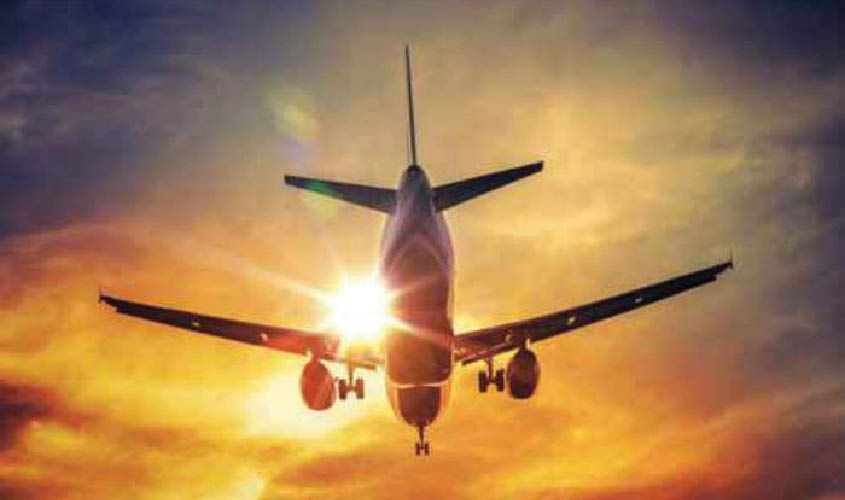Grounding of Boeing 737 Max, crisis at Jet and shortage of pilots add to woes.
The grounding of Boeing 737 Max airplanes, the financial crisis that has hit Jet Airways and the shortage of pilots at IndiGo, have hit the growing Indian aviation market hard in the last one month.
More than 45 airplanes have been grounded by various airlines in the last one month and as a result of this, there has been a sharp rise in airfares while air passenger traffic has witnessed some decline.
Low cost carrier SpiceJet, that has grounded its fleet of 12 Boeing 737 Max aircraft after the tragic Ethiopian airline crash earlier this month, is yet to take a decision on its future course of action. Following similar action by several international aviation regulators, the DGCA (Directorate General of Civil Aviation) had ordered the grounding of all fleets of Boeing 737 Max in India to ensure the safety of passengers.
This has affected the operations of SpiceJet on several routes and the airline had to cancel flights on at least 30 routes on which it operated the 737 Max airplanes. In its official statement, SpiceJet has, however, said: “SpiceJet is rationalising and optimising the use of its Boeing 737 NG and Bombardier Q400 aircraft to address the current situation and minimise inconvenience to its passengers.”
However, when asked about what long-term plan SpiceJet has to fill the gap of the Boeing 737 Max aircraft, the airline did not respond. It is to be noted that SpiceJet had placed an order for over 200 Boeing 737 Max airplanes last year.
IndiGo, another budget carrier which has expanded its fleet aggressively in the last few years, is now marred with the shortage of pilots that has forced the airline to ground at least 20 of its aircraft in the last one month. IndiGo has been grounding aircraft over the last few months, leading to cancellation of several flights.
However, IndiGo told this newspaper that all is well and that the airline is fairly maintaining the ratio of pilots per aircraft. In a written reply to The Sunday Guardian, IndiGo spokesperson said, “IndiGo continues to maintain the average ratio of about 6.7 captains per aircraft which is on the higher end of the industry benchmarking. Taking this ratio in consideration, IndiGo is confident that the airline will not face a pilot shortage. We have released internally in the last year, around 200 Senior First Officers to Captains. We have prepared ourselves for the last half year for the ongoing expansion and we will continue inducting captains at a required pace of internal upgrades of Senior First Officers at a similar rate as we have achieved in the past year. Additionally, we will have a total of 160 expats on board by end June 2019. This number includes currently existing expats of 40. Further on, IndiGo has all the requirements for a self-sustained growth of its pilot numbers. This includes an adequate number of experienced trainers of all categories, sufficient simulators, cadet programmes and tie-ups with different flight schools.”
IndiGo had placed a bulk order with Airbus for the company’s A 320 Neo and since the last one year, the budget carrier has been inducting one aircraft into its fleet every week. Also, the airlines’ venture into the
Regional Connectivity Scheme (RCS), under which smaller ATR aircraft operate, has led to an increasing demand for pilots within the airlines.
Jitendra Bhargava, former executive director of Air India, told The Sunday Guardian that the onus of having adequate pilots lies with the airlines and it is believed that if the airline is augmenting its fleet, it must have done its homework of having pilots on board.
“But in the case of IndiGo, it seems their venturing into flying smaller ATR aircraft in the RCS routes has diverted some pilots and commanders into flying these aircraft, leading to a shortfall. There is no shortage of co-pilots as it just requires three months of training, while for commanders is where the problem lies, as the requirements are much more strict, therefore the shortage. The DGCA has, however, relaxed some rules in the last few months to fill this gap,” Bhargava said.
Financial crisis ridden Jet Airways has also grounded more than 40 aircraft in the last one month after it failed to pay its dues to lessors from whom the airlines had taken these aircraft on lease. The pilots of the airlines had also threatened to go on strike after their salaries have not been paid for months. However, with the interference of the Ministry of Civil Aviation and the DGCA, Jet Airways is likely to get a bailout package of Rs 1,500 crore for the airlines to survive.
According to sources in Jet Airways, the company is working out a plan to bring the airlines back into normalcy. The airlines will also start operating 75 aircraft that it had grounded over the last few months, by April end. A source in Jet Airways told this correspondent: “The modalities for operation of all these aircraft are being worked out. The airline will release the dues of all the lessors very soon after which, by April end, the airline is hoping to operate more than 100 aircraft daily.”

